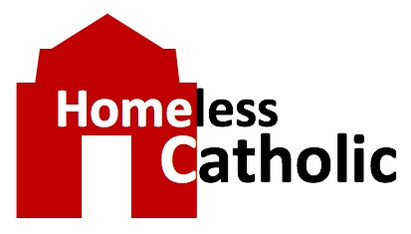Why so hard?
Many of the disciples of Jesus who were listening said, “This saying is hard; who can accept it?”
What exactly is going on here? Today’s gospel reading starts with many of Jesus’ followers having a difficult time accepting what they have heard and ultimately deciding to go home and no longer walk in his footsteps.
There must be more to this story.
Should I stay or should I go now?
http://www.usccb.org/bible/readings/050220.cfm
Acts 9:31-42
John 6:60-69
Many of the disciples of Jesus who were listening said, “This saying is hard; who can accept it?” [John 6:60]
Thus begins today’s Gospel reading. What exactly is going on here? I continue reading, hoping to find some clarifying morsel of information
Since Jesus knew that his disciples were murmuring about this, he said to them, “Does this shock you? What if you were to see the Son of Man ascending to where he was before? It is the Spirit that gives life, while the flesh is of no avail. The words I have spoken to you are Spirit and life. But there are some of you who do not believe.” [John 6:61-64]
It turns out that there were many that did not believe. But believe what? As I continue reading, I am told that Jesus already knew who would not believe as well as the identity of the one who would betray him. That made me think we were getting close to the events leading up to the arrest and crucifixion of Jesus.
Jesus then says to his followers,
“For this reason I have told you that no one can come to me unless it is granted him by my Father.” [John 6:65]
Which reason is he talking about? It seems to be that some do not believe the words of Spirit and life that Jesus spoke to them. There must have been quite a discussion earlier. What would push his new followers to a “should I stay or should I go now” moment?
As a result of this, many of his disciples returned to their former way of life and no longer walked with him. [John 6:66]
Jesus has actually sent followers away from him. He did this because they were not believers. This seems at first to be out of character for Jesus. Believers in what exactly? Don’t we really grow in our belief? Who would be left?
Jesus then said to the Twelve, “Do you also want to leave?” Simon Peter answered him, “Master, to whom shall we go? You have the words of eternal life. We have come to believe and are convinced that you are the Holy One of God.” [John 6:67-69]
I’ll admit that the first time I read through John 6:60-69, my original “take away” was that many of the followers of Jesus seemed to give up on Jesus and go home when things got “hard”, but the Twelve were still onboard. And that’s mostly true. But I had a nagging feeling that there was something bigger going on here. Maybe more context would help!
I wanted to know who the disciples were that did not believe. Was I correct that this was in the time of Passover, just before the crucifixion and resurrection of Jesus? And what about that opening statement where many of the disciples said “This saying is hard; who can accept it?” What saying are they talking about?
It’s time to start a bit earlier John 6 to see what’s going on. John 6:4 does indeed verify that:
The Jewish feast of Passover was near. [John 6:4]
I used a few internet resources to determine that this was not the Passover of the crucifixion, but that of the year before. Jesus still had another year of his ministry on earth ahead of him. This is especially enlightening, because in John 6:64 in today’s reading we were told Jesus knew from the beginning the ones who would not believe and the one who would betray him. He knew that Judas was part of the plan for his eventual death a year before it was to happen!
The “large crowd” of followers were from John’s account of the loaves and fishes, where 5 loaves of barley bread and 2 fish were enough to feed 5000 men, with 12 baskets of bread fragments left over.
When the people saw the sign he had done, they said, “This is truly the Prophet, the one who is to come into the world.” [John 6:14]
To avoid being carried off and made a king, Jesus withdrew to the mountain alone.
That evening, the Twelve boarded a boat to row to Capernaum, across the Sea of Galilee. Jesus had not been seen by dark when the boat departed. John relates his version of Jesus walking on water to catch up with the boat just as it reached the port in Capernaum.
The next part of the Gospel, John 6:22-59, is often called “The Bread of Life Discourse.” It starts with the crowd at the location of the loaves and fishes event heading to Capernaum in search of Jesus when it is determined that he is not there.
They finally catch up with him and ask when he arrived. They appear anxious to renew their association with him.
Jesus answered them and said, “Amen, amen, I say to you, you are looking for me not because you saw signs but because you ate the loaves and were filled.” [John 6:26]
As we know from previous reflections, when Jesus says “Amen, amen,” he is saying “Pay attention, this is REALLY important.” Jesus says don’t work for food that perishes but for the food that endures for eternal life.
When quizzed on what they can do to accomplish the works of God,
Jesus answered and said to them, “This is the work of God, that you believe in the one he sent.” [John 6:29]
Jesus corrects their misunderstanding that Moses gave their ancestors bread from heaven in the form of manna to eat.
“Amen, amen, I say to you, it was not Moses who gave the bread from heaven; my Father gives you the true bread from heaven. For the bread of God is that which comes down from heaven and gives life to the world.” [John 6:32-33]
We now have a group that was enthusiastically following Jesus, being told:
- You are following me for the wrong reason (physical hunger)
- You must believe in the one God sent
- It wasn’t Moses that sent bread from heaven, it was God
OK, maybe we need some additional guidance, they think, asking Jesus to give them this bread of God.
Jesus said to them, “I am the bread of life; whoever comes to me will never hunger, and whoever believes in me will never thirst. But I told you that although you have seen [me], you do not believe. Everything that the Father gives me will come to me, and I will not reject anyone who comes to me, because I came down from heaven not to do my own will but the will of the one who sent me. And this is the will of the one who sent me, that I should not lose anything of what he gave me, but that I should raise it [on] the last day. For this is the will of my Father, that everyone who sees the Son and believes in him may have eternal life, and I shall raise him [on] the last day.” [John 6:35-39]
All of a sudden, things aren’t as simple as they thought. The crowd begins to murmur. He said, “I am the bread that came down from heaven.” Isn’t this the son of Joseph? Don’t we know his father and mother?
Haven’t we seen Jesus have this problem in other gospels? It’s oddly reminiscent of Rodney Dangerfield’s “I don’t get no respect” schtick.
But Jesus isn’t finished. He goes on to say, among other things:
- Everyone who listens to my Father and learns from him comes to me.
- Amen, amen, I say to you, whoever believes has eternal life.
- I am the living bread that came down from heaven; whoever eats this bread will live forever; and the bread that I will give is my flesh for the life of the world.
- Amen, amen, I say to you, unless you eat the flesh of the Son of Man and drink his blood, you do not have life within you.
Jesus delivers this and more. I invite you to read the complete Bread of Life Discourse.
Back to the question I posed earlier. At beginning of today’s gospel, we read:
Many of the disciples of Jesus who were listening said, “This saying is hard; who can accept it?” [John 6:60]
I think it’s pretty clear that if you did not believe in or understand Jesus as the bread of life that came down from heaven, things would seem “hard.” Many of the temporary followers of Jesus were not believers, and decided to give up on Jesus. The Twelve, on the other hand, believed that Jesus had the words of eternal life and were convinced that he was the Holy One of God.
I Am the Bread of Life
Suzanne Toolan
I am the bread of Life, he who comes to me shall not hunger;
He who believes in me shall not thirst.
No one can come to me unless the Father draw him.
And I will raise him up,
And I will raise him up,
And I will raise him up on the last day.

